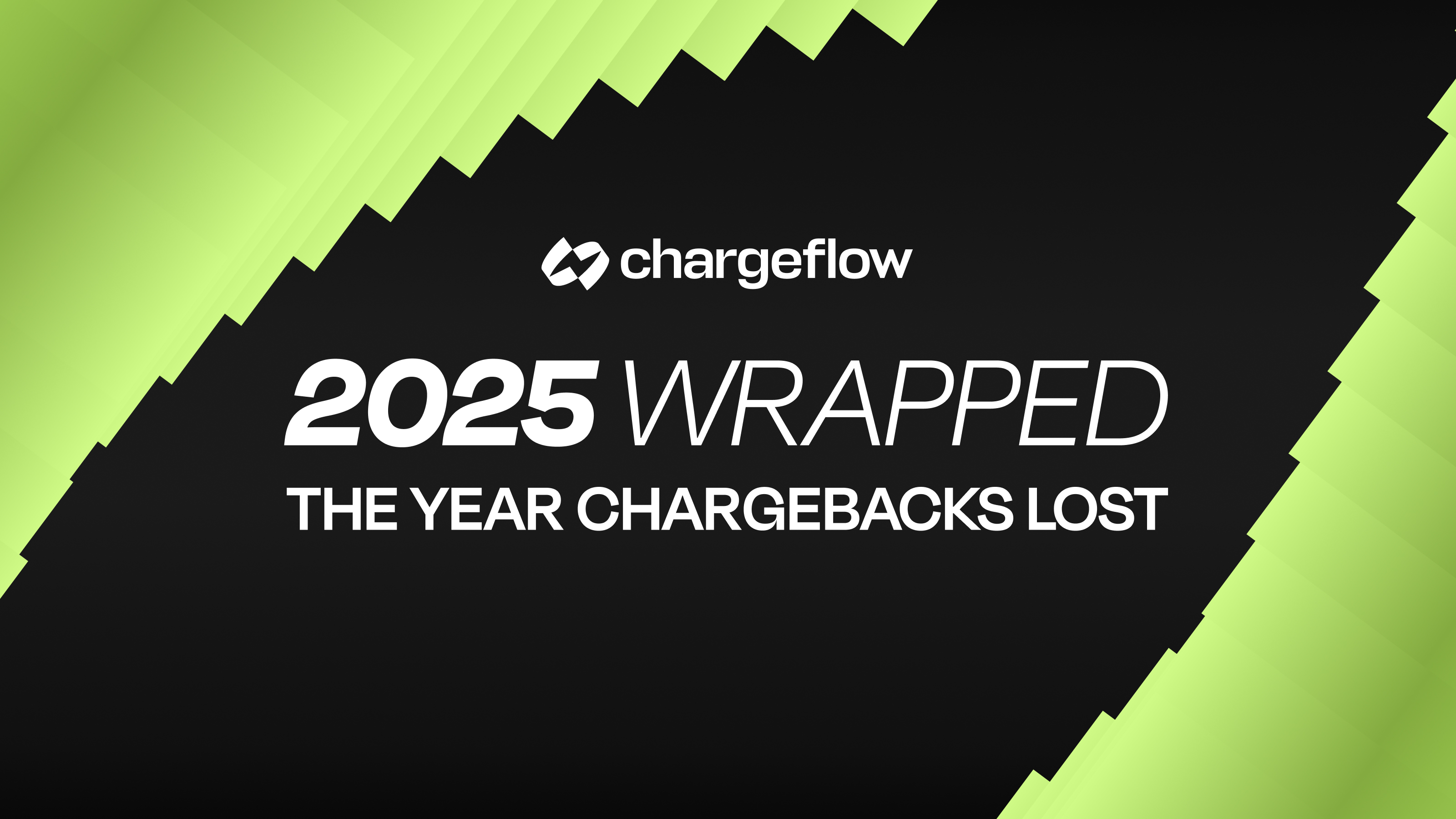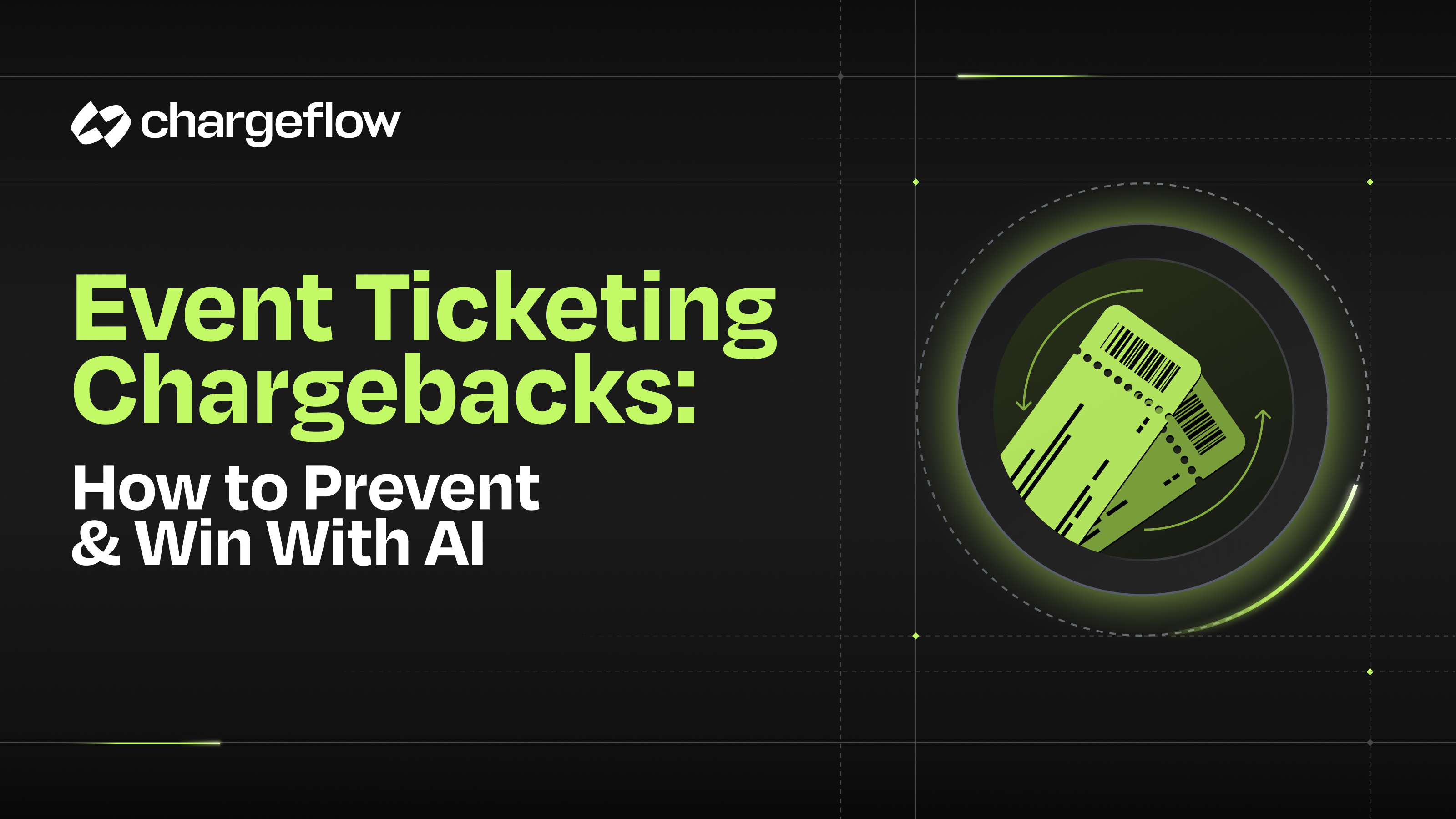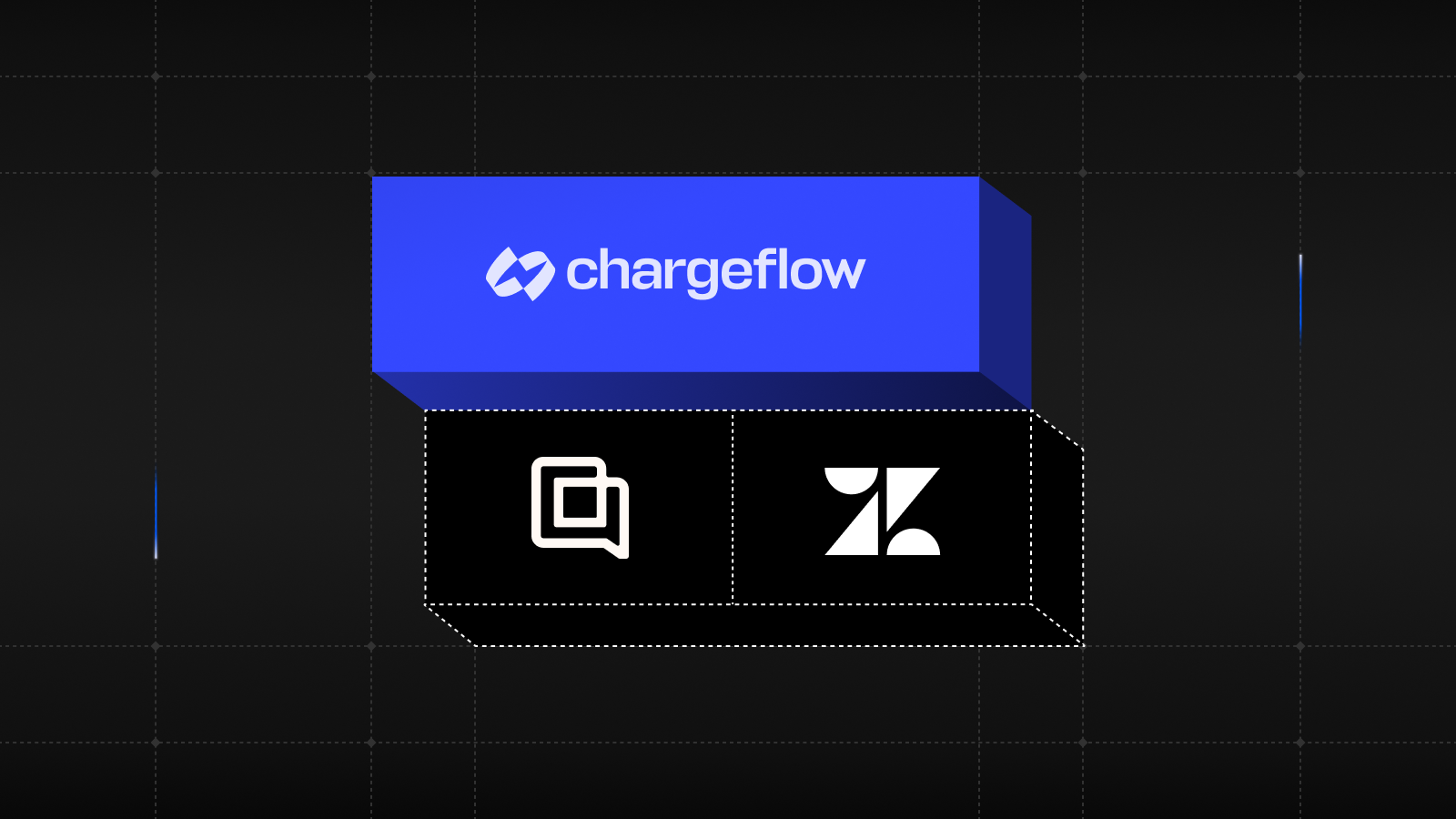Everything You Need to Know About Chargeback Fees and How to Stop Paying Them

Chargebacks?
No longer your problem.
Recover 4x more chargebacks and prevent up to 90% of incoming ones, powered by AI and a global network of 15,000 merchants.
Chargeback Fees have become a tremendous burden to e-commerce merchants. They are non-negotiable with every chargeback you get.
Chargeback Fees have become a tremendous burden to e-commerce merchants. As the number of credit and debit card disputes continue to shoot through the roof, understanding how to manage this significant business risk can determine your company's sustainability.
Apart from chargebacks being a double tragedy of a loss of revenue and stock, the other unfortunate part of receiving a chargeback is that the merchant’s acquiring bank will also place a non-refundable fee on every chargeback recorded. Whether you win or lose makes no difference; each time you receive a chargeback, you will have to pay a chargeback fee.
If you thought that was a big deal, there's more. If your business slides into the high-risk bracket due to excessive chargebacks, you will be paying higher chargeback fees. As unpleasant as it might sound, the fact remains that chargeback fees are unchangeable. At least for the time time being.
But why is that so, and what can you do about it? Are you entirely at the mercy of financial institutions and card networks? Or are there best practices you can employ to safeguard your e-commerce business from the burden of excessive chargeback fees?
To answer these questions, we shall first examine the history and rationale behind chargebacks and chargeback fees.
Banks place Chargeback Fees on merchants as their administrative charges
The origin of chargebacks dates back to some forty-seven years ago.
The need for that instrument in commerce arose after consumers began to experience incorrect and unjust billings on their credit cards. The anxiety caused by possible theft of a person’s credit card and unauthorized usage, resulting in overwhelming bills, prompted the consumer protection agency to take action. Apart from theft, consumers also feared that fraudulent merchants could leverage digital commerce's loose procedures of those days to rip off their clients by inflating prices or billing them repeatedly for the same transaction.
In response to these legitimate concerns, lawmakers in the U.S sat down, discussed, deliberated, and eventually enacted The Fair Credit Billing Act (FCBA) of 1974. FCBA aims to protect consumers from unfair billing practices and provide a mechanism for addressing billing errors in "open-end" credit accounts, such as credit card or charge card accounts.
That was how chargebacks came into being.
So if a client has issues with a specific transaction, they can demand a chargeback from their bank, without your consent. It works to keep both parties accountable in principle. However, there are significant frictions with the administration of chargeback.
Chargebacks are prone to abuse
Although it still serves as a reassurance for limited exposure to credit card fraud and keeps merchants accountable to the customer, the problem is, chargebacks put merchants in an unfavorable position. For starters, suppose that a client bought $700 worth of items from you on Tuesday. You ship it, record payment, and start looking for more sales. And then you wake up the following week, check your email, and BOOM, there’s a chargeback notice from the bank. They say you didn’t ship the $700 goods. You know the claim is inaccurate. But even though you can dispute it, the bank assumed the customer is right and has refunded him or her.
The process of reversing the chargeback is hugely complex; you could lose more money - and waste precious time trying to fight it. But that’s not all. The bank also imposes a predetermined fee on you for their involvement in mediating the customer dispute. So without warning, you’ve lost revenue, your merchandise and paid some penalty in the form of a chargeback fee.
On the flip, even when you choose to fight the chargeback and win, you only get to recover the transaction revenue. The chargeback fee is non-negotiable. And you might also spend much more money than what you are seeking to recover.
Consequently, several vendors prefer to let it go altogether - even when they know the chargeback is unsubstantial. They choose to forfeit the funds.
How much is a chargeback fee?
The answer to that depends on your acquirer and payment processor. However, most chargeback fees range from $20 to $50.
Sadly, when these chargebacks keep recurring and you cross the established chargeback ratio, you will be made to pay higher chargeback fees. In some instances, you will also incur higher processing fees or have your merchant account suspended. And in extreme cases, you will be placed in the chargeback monitoring program - which is a whole different conversation on its own.
Overall, when you do the math on the real cost of chargebacks and add up the numbers on revenue loss due to chargeback fees, you can easily understand why “death by chargebacks” is a popular terminology among e-commerce merchants. One study puts the cost of chargeback fees to companies at 2 to 3 times the transaction amount over time.
Failing to reduce your chargeback-to-transaction ratio does not only result in higher chargeback fees. It could also result in the loss of your payment processing access.
.gif)
What can you do to stop Chargeback Fees?
In the 2014 American vigilante action thriller film The Equalizer 1, Mr. McCall (played by Denzel Washington) knew the only way to stop the mob from continuing to terrorize the city and force teenage girls into prostitution was to “cut the head off the snake.” Refocusing that analogy to our discussion on chargeback fees, the only way to stop banks from taking your money is to stop, or at least, minimize your chargebacks.
There are two things you should bear in mind. The first is that acquirers and card networks instituted the stated protocols to “force” merchants to reduce chargebacks. The second thing is, it’s up to you to solve chargebacks and customer disputes, not the card network or your processor. They won't lift a finger to help you anyway.
With that in mind, we advise that to reduce the incidents of chargebacks and disputes, you should take determinate chargeback management measures such as integrating reliable fraud detection mechanisms. And this doesn't have to be as extremely technical as it might sound. By simply using identity verification services like AVS and CVV in your checkout processes, you can limit the possibilities of false identities, which often result in unauthorized transactions chargeback.
Further, it is wise to provide customers with an accurate and descriptive representation of your products or services. That will go a long way to prevent genuine chargebacks due to the wrong product description. Also, do well to have carefully-drafted shipping information and refund policy. And it equally makes business sense to be responsive when customers contact you with queries or issues on their orders. 40% of chargebacks result from merchant error, and many customers resort to chargebacks when they couldn’t reach or get help from the vendor’s customer service unit.
If you have accurate insight and data, you can stop Chargeback Fees
In the final analysis, the rise and fall of e-commerce businesses hinge on insights and data.
Here's an example. Suppose you know about a chargeback incident beforehand and mitigate the customer grievance by refunding them or providing other alternatives. In that case, that'll save you the trouble of dealing with chargebacks because addressed their concerns. And no chargeback fees apply also.
Even if you lose the revenue, you would’ve saved some money by avoiding chargeback fees. And you also keep your chargeback ratio in check, which are two substantial gains for e-commerce vendors.
That is why Chargeflow’s chargebacks and disputes automation service is a complete gamechanger! Merchants that use Chargeflow.io have access to extensive and reliable data on transactions and predictive analytics on impending chargebacks. Our software helps businesses alleviate any controversies with customers and intercept all chargebacks before they become real.
That is definitely a smart way to ensure that a chargeback DOES NOT happen in the first place.
When you subscribe to Chargeflow and start using our automated chargebacks and disputes management tool, you will never have to put your fate in the hands of acquirers and card networks. Instead, our software will give you all the data and resources to secure your business from online shoplifters and avoid the loathsome chargeback fees. It’s a whole new world in doing business!
To conclude this article, we remind you of a simple truth: the idea that chargebacks are the cost of doing business is only reasonable when you don’t have the right tools to mitigate the risk. Now that you know you’re not helpless, would you instead continue to lose your revenue to chargeback fees or fight back with Chargeflow’s industry-first chargeback and disputes automation software? Sign up with our two-click process and rev up the engines of your business growth today. See you on the inside!

Chargebacks?
No longer your problem.
Recover 4x more chargebacks and prevent up to 90% of incoming ones, powered by AI and a global network of 15,000 merchants.
















































.png)








